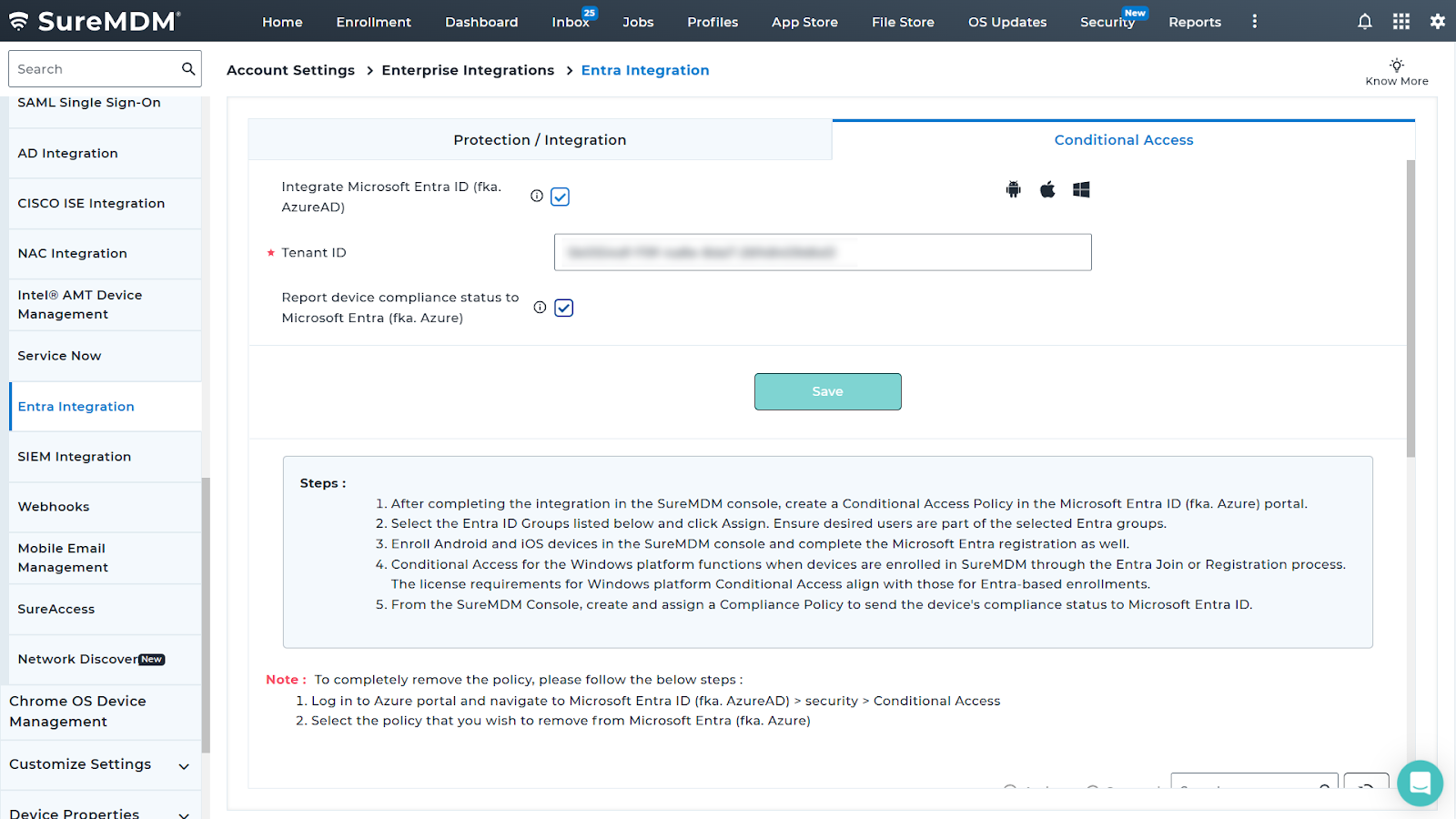The Role of Conditional Access in Protecting Microsoft 365 Apps
jul 17, 2025 | Nareddy Saivikas Reddy
Last Updated: sep 09, 2025
Businesses heavily rely on Microsoft 365 applications such as Outlook, Word, Excel, PowerPoint, and OneNote for communication and managing corporate documents. Given the importance of Microsoft 365 apps for businesses, ensuring a secure access environment is not merely an option; it's a must.
In recent years, a large number of businesses have moved to the cloud to avoid the high maintenance costs, and the increasing complexity of managing traditional data storage servers. Furthermore, the adoption of BYOD devices at workplaces has made it tedious and risky to ensure authorized access to corporate resources like Microsoft 365 apps from different devices and geographical locations.
As a device compliance partner SureMDM offers device-based conditional access policies for Microsoft 365 apps to address the above challenges.
What is Conditional Access?
At its core, conditional access is a security framework that decides whether to grant or deny access to applications based on specific conditions. This framework is built into Microsoft Entra ID (formerly Azure AD) and acts like a digital checkpoint: before letting anyone through, it evaluates factors like the user’s identity, their device’s status, their location, and even the time of the request. If everything checks out, access is granted. If something’s off—say, a login attempt from an unfamiliar country or an outdated device—it’s blocked.
Imagine it as a smart lock on your front door. It doesn’t just care about the key (your password); it also checks if the person holding it matches your security rules, like someone trying to unlock the door at an unusual time of the day. This multi-check approach makes it a cornerstone of modern cybersecurity, especially for organizations relying on cloud-based tools like Microsoft 365.
Conditional Access in SureMDM
Conditional Access in SureMDM operates through a set of policies and rules that determine whether a user and their device are allowed access to Microsoft 365 apps.
With Conditional Access enabled, IT admins can restrict access to Microsoft 365 applications on iOS, Android, and Windows devices. This is achieved by setting device compliance requirements such as minimum OS version, rooted status, security patch level, password policy, Windows genuine validation, etc. Devices that are either unmanaged or don't meet these compliance requirements are blocked from accessing Microsoft 365 apps.
Note: Conditional Access for the Windows platform functions when devices are enrolled in SureMDM through the Entra Join or Registration methods. The license requirements for Windows platform Conditional Access align with those for Entra-based enrollments.
This is how Conditional Access Policies look on your SureMDM Console

Here is the list of compliance policies supported for Android, iOS, and Windows.
Why does your organization need Conditional Access?
Passwords can no longer protect against unauthorized access and the latest hacking techniques that pose a threat to sensitive corporate data. As such, organizations that rely only on passwords for access control may be at risk.
Conditional Access policies are the best way for organizations to add a security layer to their access controls to prevent unauthorized access. With Conditional Access, you can safeguard sensitive data by restricting access to Microsoft 365 apps to authorized devices while also enforcing device compliance policies to ensure only secure devices can access them.
Conditional Access in Mobile Device Management (MDM) is crucial as it strengthens security, adapts to modern work trends, and ensures data protection. Think of it like this: a user trying to access sensitive corporate resources from an unmanaged or non-compliant device could be blocked by Conditional Access, thereby preventing data from accidentally falling into the wrong hands.
Like an If-Then statement, Conditional Access protects your data by requiring users to meet specific criteria (based on device compliance rules) before accessing Microsoft 365 apps. SureMDM lets you deploy effective Conditional Access policies to help you prevent unauthorized device access and safeguard sensitive data.
The Bottom Line
Microsoft 365 apps are indispensable, but they’re also prime targets. Conditional Access through SureMDM offers a practical, proactive way to secure them. By tying access to device health and compliance, businesses can stay ahead of threats, protect sensitive data, and embrace the flexibility of modern work—all without breaking a sweat.
FAQs on Conditional Access Policies for Microsoft 365 Apps
What is Conditional Access Policy?
How does Conditional Access protect Microsoft 365 apps?
How do Conditional Access policies support remote and hybrid work environments?
What happens if a device is non-compliant?
Why is Conditional Access important for Microsoft 365 apps?
What is Conditional Access in Mobile Device Management (MDM)?
Can Conditional Access prevent unauthorized logins to Microsoft 365 apps?
Set Up Conditional Access for Microsoft 365
Apps with SureMDM
Subscribe for our free newsletter


